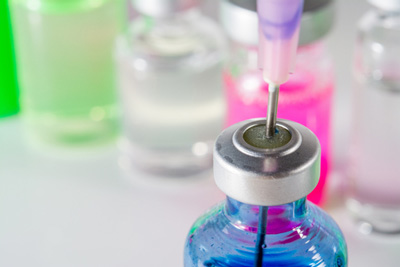Gavi funds Merck’s development of Ebola vaccine
Posted: 20 January 2016 | | No comments yet
Gavi has provided US$ 5 million towards the development of Merck’s rVSV∆G-ZEBOV-GP live attenuated Ebola Zaire vaccine, on the understanding that it will be submitted for licensure by the end of 2017…


Gavi, the Vaccine Alliance and Merck & Co have signed an agreement to support the provision of a vaccine to protect against future deadly Ebola outbreaks.


The agreement will help Merck take the vaccine through licensure and WHO prequalification.
Under the Advance Purchase Commitment, Gavi has provided US$ 5 million towards the development of Merck’s rVSV∆G-ZEBOV-GP live attenuated Ebola Zaire vaccine, on the understanding that it will be submitted for licensure by the end of 2017. If approved, it would become one of the world’s first licensed Ebola vaccines and Gavi would be able to begin purchasing the vaccine to create a stockpile for future outbreaks.
Additionally, Merck will ensure that 300,000 doses of the vaccine are available from May 2016 for use in expanded use clinical trials and/or for emergency use as needed while vaccine development continues. Merck has already submitted an application through WHO’s Emergency Use Assessment and Listing (EUAL) procedure. If the EUAL is approved, this will provide an opportunity for the investigational vaccine to be used if another public health emergency with Ebola occurs before the vaccine is licensed.
Commenting on the agreement, Gavi CEO Dr Seth Berkley said, “The suffering caused by the Ebola crisis was a wake-up call to many in the global health community. New threats require smart solutions and our innovative financing agreement with Merck will ensure that we are ahead of the curve for future Ebola outbreaks.”
Dr Julie Gerberding, executive vice president, Strategic Communications, Global Public Policy and Population Health for Merck, added, “We are very pleased to join with Gavi in announcing this Advance Purchase Commitment agreement to support the provision of MSD’s investigational monovalent Ebola Zaire vaccine – in case of a resurgence of the Ebola outbreak or a new outbreak.”
Gavi is working with all Ebola vaccine manufacturers
On 14 January, WHO announced that no new Ebola cases had been reported in the three worst affected countries in the preceding 42 days. Shortly, following the announcement, which included a warning that sporadic flare-ups could occur, Sierra Leone reported an Ebola-related death.
The Ebola epidemic in West Africa claimed the lives of more than 11,300 people and infected over 28,600. It also had a devastating impact on the health systems with disruptive effects on childhood immunisation programmes. It is estimated that coverage rates for the basic DTP vaccine dropped by about 30% in both 2014 and 2015 compared with 2013. This has resulted in several outbreaks of vaccine-preventable diseases and loss of confidence in the health care system.
Vaccine manufacturers have been working since the beginning of the Ebola outbreak to develop an effective, safe vaccine. Although early-stage development took place more than a decade ago, mainly to counter potential bioterrorism threats, no manufacturer had a vaccine in Phase III trials when the outbreak began. Gavi continues to work with all vaccine manufacturers, including GSK and Janssen Pharmaceutical Companies of Johnson & Johnson, that are advancing their development programme of the Ebola vaccine in order to be prepared should a new outbreak occur.




